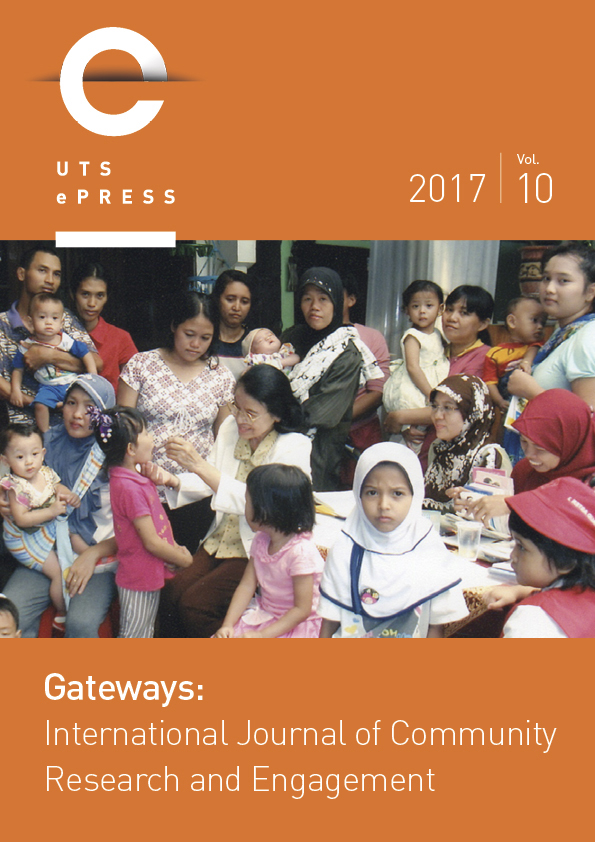Learning and service at the University of Buenos Aires: A theoretical framework guiding the implementation of educational social practices
Main Article Content
Abstract
From 2017 onwards, educational social practices will become obligatory for all students as part of every course at the University of Buenos Aires (UBA), Argentina. For a university with approximately 300 000 students, this is a major change in how higher education is understood. However, its incorporation into the curricula is but the final stage of a clear policy of extensión, developed over decades at UBA, in which the knowledge produced through research and teaching is put into the service of society. In this article, we propose that extensión can be understood as a form of relationship between the university and society, framed by a pedagogical strategy of solidarity learning and service, and implemented through mechanisms that are here called ‘educational social practices’. This article first provides an overview of the different traditions of learning and service, paying particular attention to its development in Latin America, and the emergence in this region of ‘solidarity learning and service’, or situated education. Unlike other forms of learning and service, here, the basic unit of analysis is not the individual or the learning processes, but the reciprocal action; that is, the relational nature of people acting in certain contexts. Next, the article provides a short description of the Comprehensive Community Action Program in Vulnerable Neighborhoods, UBA’s MacJannet Prize–winning program, as a means to illustrate our distinct understanding of extensión in action – relational, situational, pedagogical and the mechanisms that propel it. This successful program has served as a fertile learning ground for the university, informing our understanding of what it means to teach, research and learn. To finish, the article provides a brief overview of these mechanisms by which the university has made whole-of-university participation mandatory: striving towards connectivity, continuity and curricular and social impact.
Article Details
Issue
Section
Authors who submit articles to this journal from 31st March 2014 for publication, agree to the following terms:
a) Authors retain copyright and grant the journal right of first publication with the work simultaneously licensed under a Creative Commons Attribution License that allows others to share and adapt the work with an acknowledgement of the work's authorship and initial publication in this journal.
b) Authors are able to enter into separate, additional contractual arrangements for the non-exclusive distribution of the journal's published version of the work (e.g., post it to an institutional repository or publish it in a book), with an acknowledgement of its initial publication in this journal.
c) Authors are permitted and encouraged to post their work online (e.g., in institutional repositories or on their website) prior to and during the submission process, as it can lead to productive exchanges, as well as earlier and greater citation of published work (See The Open Access Citation Advantage Service). Where authors include such a work in an institutional repository or on their website (ie. a copy of a work which has been published in a UTS ePRESS journal, or a pre-print or post-print version of that work), we request that they include a statement that acknowledges the UTS ePRESS publication including the name of the journal, the volume number and a web-link to the journal item.
d) Authors should be aware that the Creative Commons Attribution (CC-BY) License permits readers to share (copy and redistribute the work in any medium or format) and adapt (remix, transform, and build upon the work) for any purpose, even commercially, provided they also give appropriate credit to the work, provide a link to the license, and indicate if changes were made. They may do these things in any reasonable manner, but not in any way that suggests you or your publisher endorses their use.
For Volume 6 (2013) and before, the following copyright applied:
Articles published by UTSePress are protected by copyright which is retained by the authors who assert their moral rights. Authors control translation and reproduction rights to their works published by UTSePress. UTSePress publications are copyright and all rights are reserved worldwide. Downloads of specific portions of them are permitted for personal use only, not for commercial use or resale. Permissions to reprint or use any materials should be directed to UTSePress.
